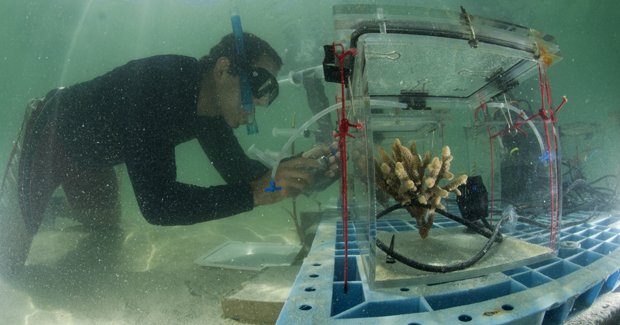Sea cucumber poo to save Great Barrier Reef

SCIENTISTS AT ONE TREE ISLAND, the University of Sydney’s research station on the Great Barrier Reef, say sea cucumbers could reduce ocean acidification affecting coral growth. The experts argue that we need to think more carefully about commercially harvesting these animals that could help mitigate the impacts of climate change.
“When they ingest sand, the natural digestive processes in the sea cucumber’s gut increases the pH levels of the water on the reef where they defecate,” says One Tree Island deputy director, Professor Maria Byrne. This works to counter the negative effects of ocean acidification, which is caused by carbon dioxide pollution dissolving in sea water.
One of the by-products when sea cucumbers digest sand is also calcium carbonate (CaCO3), which is a key component of coral.
“To survive, coral reefs must accumulate CaCO3at a rate greater than or equal to the CaCO3 that is eroded from the reef [by ocean acidification],” Maria says. “The research at One Tree Island showed that in a healthy reef, dissolution of calcium carbonate sediment by sea cucumbers and other bioeroders appears to be an important component of the natural calcium carbonate turnover.”

Testing the effects of ocean acidification at One Tree Island Research Station on the GBR. (Credit: David Doubilet, National Geographic/Getty Images)
Daily dose of calcium
The ammonia waste produced when sea cucumbers digest sand also serves to fertilise the surrounding area, providing nutrients for coral growth. Sea cucumbers are among the largest invertebrates found on tropical reefs.
Some 30 species are commercially harvested by the fishery industry along the Great Barrier Reef and throughout the tropics.
Given this Maria says, “we urgently need to understand the impact of removing sea cucumbers and other invertebrates on reef health and resilience at a time when reefs face an uncertain future.”
Find more about the One Tree Island Research Station here.
RELATED STORIES




